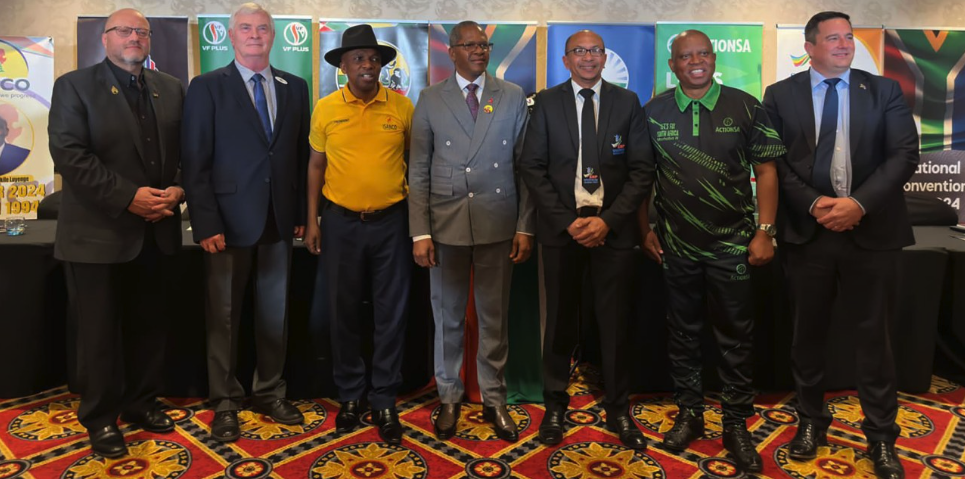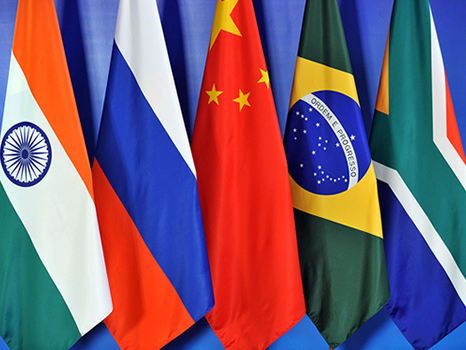News
South Africa’s Moment of Political Hope has Finally Arrived
Suddenly the 2024 election has become a real contest between two divergent value systems and all bets are off.

Research Director, The Brenthurst Foundation

Director, The Brenthurst Foundation

Seven opposition parties have signed up for the Multi-Party Charter for South Africa following two days of discussion at Emperor’s Palace in Kempton Park, signalling the first serious challenge to 30 years of ANC domination in elections.
The sight of DA leader John Steenhuisen, IFP leader VF Hlabisa, ActionSA leader Herman Mashaba, FF Plus leader Pieter Groenewald and others standing up to sign the pledge signalled that opposition parties are ending the era of petty infighting among themselves to focus on the greater project of winning an election.
This is what sceptical South Africans of the democratic centre have been longing to see. Suddenly the 2024 election has become a real contest between two divergent value systems and all bets are off.
South Africans want to see their leaders working together to solve the country’s problems. A Brenthurst Foundation survey conducted late last year showed that 78.6% of voters “would be happy to see a coalition of political parties govern South Africa”. This was despite the negativity generated around the collapsing coalition in Johannesburg at the time of the survey.
Essentially a pre-election pact, the agreement binds the parties to work together to form a government should they collectively win enough votes in the 2024 general election. The pact goes further to outline a series of agreed-on priorities for such a government, including growing the economy, ending load shedding and boosting law and order, quality education and healthcare.
It remains true to the constitutional imperative for social justice, saying it would “redress our unjust past by promoting nonracialism and unity in our diversity”.
While these broad goals are not surprising, it is notable that there is a shared commitment to building a professional and meritocratic public service by “ending cadre deployment” and “delivering basic services to all through high-quality infrastructure”.
The agreement outlines a commitment to “ensure that governance is underpinned by an ethos that seeks to promote South Africa’s long-term best interest”.
The eight points include a strong commitment to the Constitution, “the rule of law and equality before the law”, but interestingly also propose “decentralising power to the lowest effective level of government”.
There is also a notable commitment to “an open market economy”, suggesting that the economic reforms needed to bring about growth would be on the agenda.
A lot more detail will need to be fleshed out in the weeks to come. That is a tantalising prospect, offering an alternative to the staid statism and cronyism that defines ANC policy. In foreign policy, for example, it is high time South Africa shrugged off a policy that appears to hinge on reactivating liberation romanticism rather than activating the trade and investment opportunities that will drive job creation. This offers multipliers of value to the repurposed education and infrastructure systems that the coalition has already identified as an urgent need.
Complacent dominance
It is clear that the era of a complacent dominant party enabling misgovernance is over and, to borrow a hackneyed phrase, “a new dawn” of fierce political competition has broken.
The absence of serious political competition on the national stage over the past three decades is the political mechanism that has enabled corruption, poor service delivery, crony enrichment and the failure of Parliament to properly perform its oversight role.
These problems have been well described by the Zondo Commission of Inquiry into State Capture, but nothing has been done as the ANC has chosen to protect its own rather than introduce far-reaching accountability.
Without active political competition, which includes the possibility of losing power, ruling parties become complacent and substitute delivery to the people with delivery to themselves and their cronies, as has been all too evident over the past 15 years of misgovernance.
There is now the possibility that, in the 2024 election, the ANC will lose its majority in Gauteng — and possibly even in KwaZulu-Natal — to an organised coalition, putting all three of South Africa’s major provinces in opposition hands. And, should the ANC fall below 50% in the national result, a coalition government of some form will be necessary.
The big question is whether members of the coalition can persuade the millions who have given up on politics to turn out on election day. A notable feature of South Africa’s democracy is the rapid growth in voter apathy.
Calculations by The Brenthurst Foundation to measure the estimated number of adults 18 years old and older who could potentially vote against actual voter turnout show how fast apathy is growing.
Official election numbers indicate the percentage of registered voters who participated in elections, but this excludes the growing number of younger voters who are choosing not to register and who never engage with formal politics.
In 1994, 86.8% of adults voted. This number has dropped steadily and in 2019, for the first time, fewer than 50% of adults voted. This means there are some 18 million adults not participating. We have reached the point where the very foundations of democracy are threatened.
What is certain is that we have entered a new era of democracy where the contest for power is real. The million-dollar question remains: Will the majority of South Africans be inspired to vote and breathe new life into our calcifying electoral process?
This article originally appeared on the Daily Maverick
Photo:Twitter / @Our_DA


